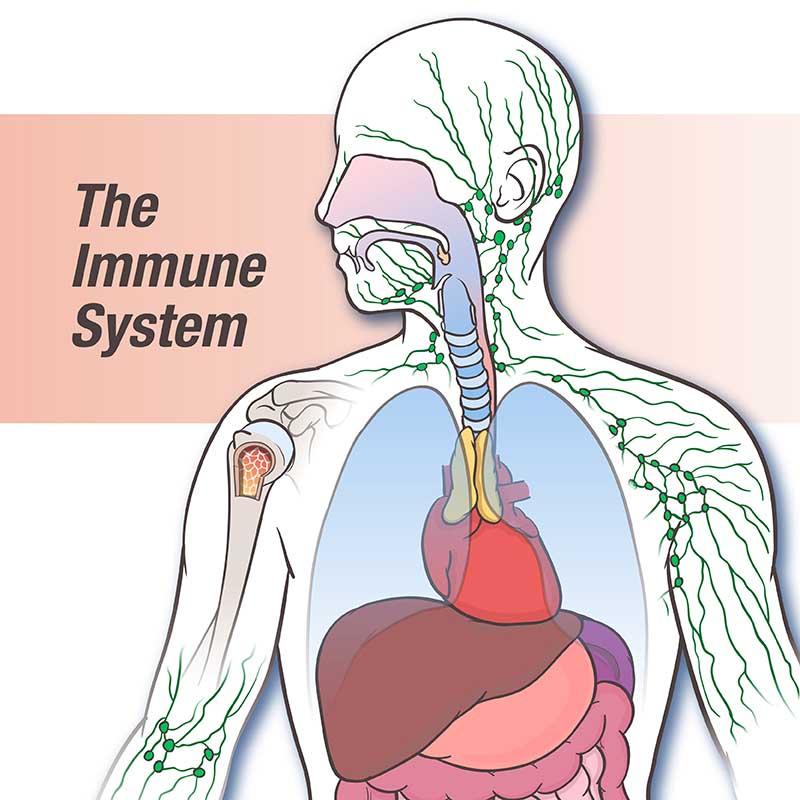Your amazing immune system.
What an amazing immune system we have!!
Our body is made up of cells, organs and systems.
There are 11 body systems – the nervous, respiratory, digestive system, skin, skeletal, muscular, endocrine, cardiovascular, urinary, reproductive – and the immune system!!
Our body systems work together to perform functions in our body. The nervous system is the master system, controlling all other systems, and our nervous system runs through our spinal column, which protects it from interference.
The immune system is responsible for resisting external organisms, such as virus’ and bacteria.
The ability to resist these organisms is determined by a combination of the strength of the organism (virulence), versus the integrity of the host defence mechanisms (host defence).
The system consists of a network of immune organs, immune cells, blood circulation factors, and cytokines (proteins which control the activity of blood cells).
Under activity of the immune systems results in the severe infections, and overactivity in allergic and autoimmune disease.
The first layer of response that our immune system has is non-specific – the innate immune system.
Non-specific defences are summarised into categories such as…..
- physical barriers
- inflammation
- immune cell release,
- macrophage/neutrophils
- Nk cells
- complement
- interferon
- fever.
Physical barriers include our skin, mucus membranes, stomach acid, cough reflex, and enzymes. Inflammation is a normal immune response, which helps prevent the spread of infection. This includes localized redness, pain and swelling, and warmth, and other symptoms such as fever, general discomfort, uneasiness, or ill feeling (malaise), muscle aches, agitation or confusion.
Our body then sends cells to the area which “eat” (phagocytose) micro-organisms, dead and/or damaged cells. This releases chemicals, which stimulate other immune cells.
Our second level system of the immune system is called the specific immune response. T cells attack virus’s, and B cells have a memory of previous infections, thus forming proteins called antibodies (also known as immunoglobulins).
Our gut is super important in our immune system due to lymphoid tissues located within it. Gut flora influence some aspects the immune system, and development of allergies, by affecting intestinal permeability.
In addition to looking directly at the immune system, we should also remember that systems in our body such as the digestive system, skin systems and respiratory systems are working synergistically together for optimum function of each. Furthermore, the nervous system is the controlling system of the body, and research indicates the neurological system interacts with the immune system in a bi-directional manner.
In a world which tends to look too much at what can “go wrong” in our body, it is worth remembering that without us even realising it, our wonderful body is working for us to keep us healthy. Remembering this is step one in our wishing to be healthy.
The next step becomes respecting the body, and doing things that promote good health in our body.




